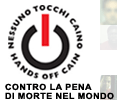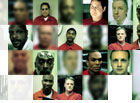|
 |
|

|
EU. EURO LAWMAKERS BLAST EU'S SOFTER LINE TOWARD CUBA
April 28, 2005: the European Union's legislative branch expressed its dissent with the executive over policy toward Cuba, condemning a shift seeking rapprochement with the Communist-ruled island that included suspension of diplomatic sanctions.
The European Parliament approved a document with a paragraph on Cuba that "condemns the sudden change of strategy and lifting of sanctions by the Council," which comprises heads of state and government from the blocs 24 member nations.
By a vote of 251-64 with 255 abstentions, Euro lawmakers accepted that portion of the Annual Report on Human Rights in the World 2004, a text dealing with the state of basic liberties in more than 70 nations.
Most of the abstentions were by Socialist members of the body.
EU members agreed in January on the "temporary suspension" of the diplomatic sanctions imposed on Cuba in June 2003.
Those measures, adopted in response to the jailing of 75 peaceful dissidents and the execution of three would-be emigrant ferry hijackers, included a restriction on high-level official visits to Cuba, a reduction in cultural exchanges with the island and inviting government foes to national-day events at EU embassies in Havana.
The report approved with the vote, drafted under the direction of conservative Irish parliamentarian Simon Coveney, denounced the softer approach to Fidel Castro's regime.
Cuba was mentioned in two of the document's 231 paragraphs, the second of which - condemning the Cuban government's resumption of capital punishment after a years-long moratorium on executions - provoked no opposition in the European Parliament.
But leftist legislators insisted that the paragraph with the passage condemning the EU's new policy be voted on in two separate parts.
The Socialists raised no objections to the report's call for "Cuba to accept the right of free assembly and free speech and to immediately restore the unofficial moratorium on the death penalty" or to language denouncing the imprisonment of political opponents and urging their immediate release. (Sources: EFE News Service, 28/04/2005)
|

